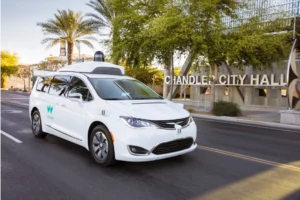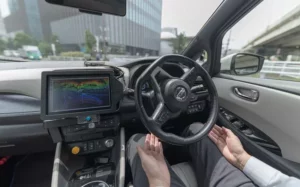The behavioural scientist Rory Sutherland has used his latest column in the Spectator Magazine to “put the case for driverless cars”, look at the possible benefits but warn of the downsides.
The Vice-Chairman of advertising agency Ogilvy refers to a study by researchers at UC Berkeley and UC Davis who simulated a world of driverless cars by providing a representative sample of volunteer households in Sacramento with a full-time chauffeur for up to 60 hours a week and then logged the effect on their travel patterns.
He says the resulting paper, Simulating Life with Personally Owned Autonomous Vehicles through a Naturalistic Experiment with Personal Drivers, is fascinating.
He writes that “first of all, the use of mass transit fell by more than 90 per cent among households with a chauffeur. Overall miles driven rose by 60 per cent overall, and by more than 120 per cent among retirees. What was perhaps most surprising was that much of the increased car mileage consisted of what were deemed zero–occupancy journeys, where the chauffeur drove the car with no passenger present. People sent their car to collect a friend, then would engage in some sociable activity, before asking the driver to ferry their friend back home.”
This led to one “brutal conclusion” that, given the choice, people really don’t like using mass transit and that “it also suggests that AVs might lead to a huge increase in road traffic”, but that on the upside, “general sociability and quality-of-life gains, especially for the elderly and disabled, would be immense. Many households could also get by owning one car rather than two. Either way, we need far more behavioural experiments like this”.
Read the column here (paywall).
(Picture – Yay Images)





















